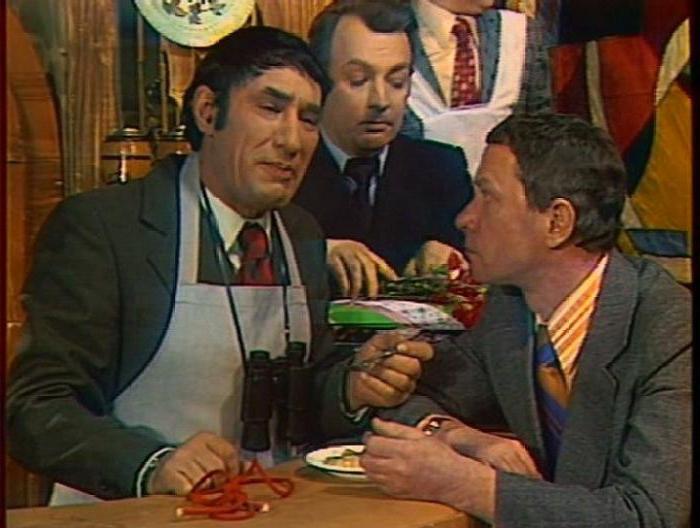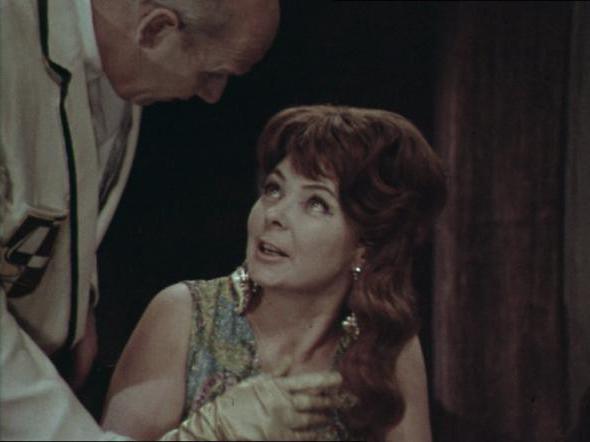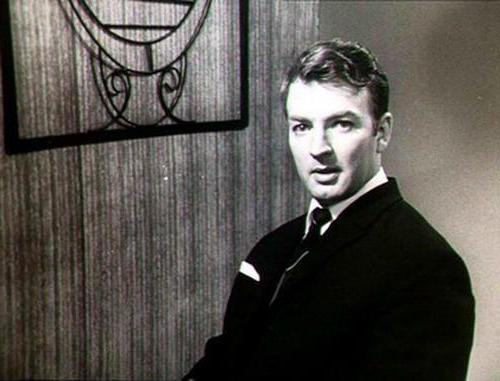It is unlikely that today's entertainment programs and endless humorous sequels are gaining such a level of popularity as the famous “Zucchini” has 13 chairs in its years. Millions of viewers in the evenings touched the screens of their black and white TVs to meet again with their favorite characters - the presenter and the pan Director, Mrs. Zosey and Mrs. Elzbieta. People threw away all their affairs so as not to miss a single precious minute of broadcasting. A traditional music screensaver sounded - and the viewers ended up in the “Zucchini“ 13 Chairs ”
From the history of television
The first test release of Zucchini took place in the mid-60s. For the first time on a blue screen, the program appeared under the name Good evening. And in the prehistory there was an event that did not seem, at first glance, of any importance. The Polish magazine "Studs" fell into the hands of television people. Within a few minutes, all those present were holding their bellies with laughter, they were quite ridiculed by Polish jokes, "mistresses" and "gentlemen" with their conversations. At Shabolovka, it was decided to film several of them, and this decision was quickly put into practice. The program, like many things at that time, would have been “on the shelf” forever, if not for the bags of letters with which the viewers had flooded the editorial staff of Shabolovka. The leadership did not resist the requests of viewers, and programs began to appear on an ongoing basis. So at the official level “Zucchini“ 13 Chairs ”got its life, the actors enthusiastically got down to business, and as a result, it turned out to be a real masterpiece of the humorous transmission of the Soviet era.

Actors "Zucchini"
The main roles in “Zucchini” went mainly to the then artists of the Satire Theater. In total, about 50 actors were employed in the filming. Among them, recognized stars - Mikhail Derzhavin, Alexander Belyavsky and Andrei Mironov, they played the role of the sparkling Pan leading in different years. The brilliant T. Peltzer played the grouchy old lady Mrs. Irena. And the magnificent Olga Aroseva - Mrs. Monica, whose hats conquered the fashionistas of that time. And besides them, also E. Vasilyeva (Mrs. Elzbieta), V. Dolinsky (eccentric pan Pepichek), G. Vitsin (pan Odyssey Tsypa), S. Mishulin (pan Director) - a truly stellar cast of involved artists, recognized masters of humorous miniature . The program “Zucchini“ 13 Chairs ”, the actors starring in it, were very popular and loved by the people, and viewers often called artists by the names of their television characters than by their own. Heroes first became good friends, and then relatives. What is the secret to the popularity of Zucchini? The usual gatherings in a cozy cafe, where in fact there were 13 chairs, conversations at the bar, good jokes of cute and eccentric characters of "Zucchini" and popular songs. But the artists managed to create the main thing that the Soviet audience wanted to see and feel - the atmosphere of carelessness, the feeling of an easy and beautiful life, and even some carelessness. The creators of the program gave the viewer exactly what he wanted, and the viewer sincerely fell in love with Zucchini. Spartak Mishulin joked that even if he leaves the house naked, barefoot and without a penny of money, then his directors will get drunk, feed and give money in almost every house in the country. And he was absolutely right.

Interesting facts from the history of the transfer
The series lasted for 15 years, the total transmission time of about 145 air hours, 133 issues were released, of which only 11 have survived to the Russian State Television and Radio Fund today. This is due to the lack of video recording until 1970 and the shortage of videotape. Broadcasts more often went live.
The Polish government closely watched and loved the program “Zucchini“ 13 Chairs ”. The actors who participated in the filming and the leaders of the program were awarded the title of Honored Worker of Culture of Poland.
Hundreds of authors, both Polish and, at that time, Soviet, wrote miniatures and reprises for the next issue of Zucchini. Among them, M. Zadornov, L. Izmailov, S. Altov, G. Gorin, A. Heit. The programs sounded music performed by Mireille Mathieu, the group "ABBA", Maryli Rodovich, Dalida. Artists and artists studied the lyrics in the original language so that the viewer did not feel the falsity at the moment of sounding the phonogram. The “Zucchini“ 13 Chairs ”itself, the actors who starred in it, ceased to be attacked by Soviet criticism only years after the first broadcast due to a positive assessment in the newspaper Pravda, while no one could argue with the opinion of this publication. The phrase "And then prove that you are not a camel!" Born in the “Zucchini“ 13 Chairs ”.
Not without politics
“Zucchini” was broadcast on the Intervision, it was impossible to hide it from the “prototype” in the person of the Poles. Many at that time wondered if the Poles were offended by the jokes shown in the program. But the jokes, although sometimes sharp, were very spiteless and, moreover, were taken for the most part from the satirical publications of Poland itself, so that problems never arose. In Poland, too, they liked the “Zucchini“ 13 Chairs ”, the actors were frequent guests of embassy receptions. The Polish government presented actors with several awards of the Sejm. And Spartak Mishulin received the title of Honored Artist of the Republic of Poland for his role. But nevertheless, after the aggravation of the political situation in Poland, the leaders of the program, frightened by the allusion and the fact that the viewer would not think at all what the characters of the program were talking about, decided to close the program. The latest issue was released in the fall of 1980. The program was closed until “better times”, but they never came ...

Under the curtain
This program was loved by everyone, including the Secretary General of the CPSU L. Brezhnev. For the fifteen years that this program went on the air, the actors managed not only to grow old, but also to become familiar to every Soviet person. At the same time, satirical and sharp reprises were kind and harmless; Soviet women often borrowed models of clothes or hats from programs. “Zucchini” was a real window to some other, unusual and unfamiliar world, and all the inhabitants of a huge country looked into it with pleasure.